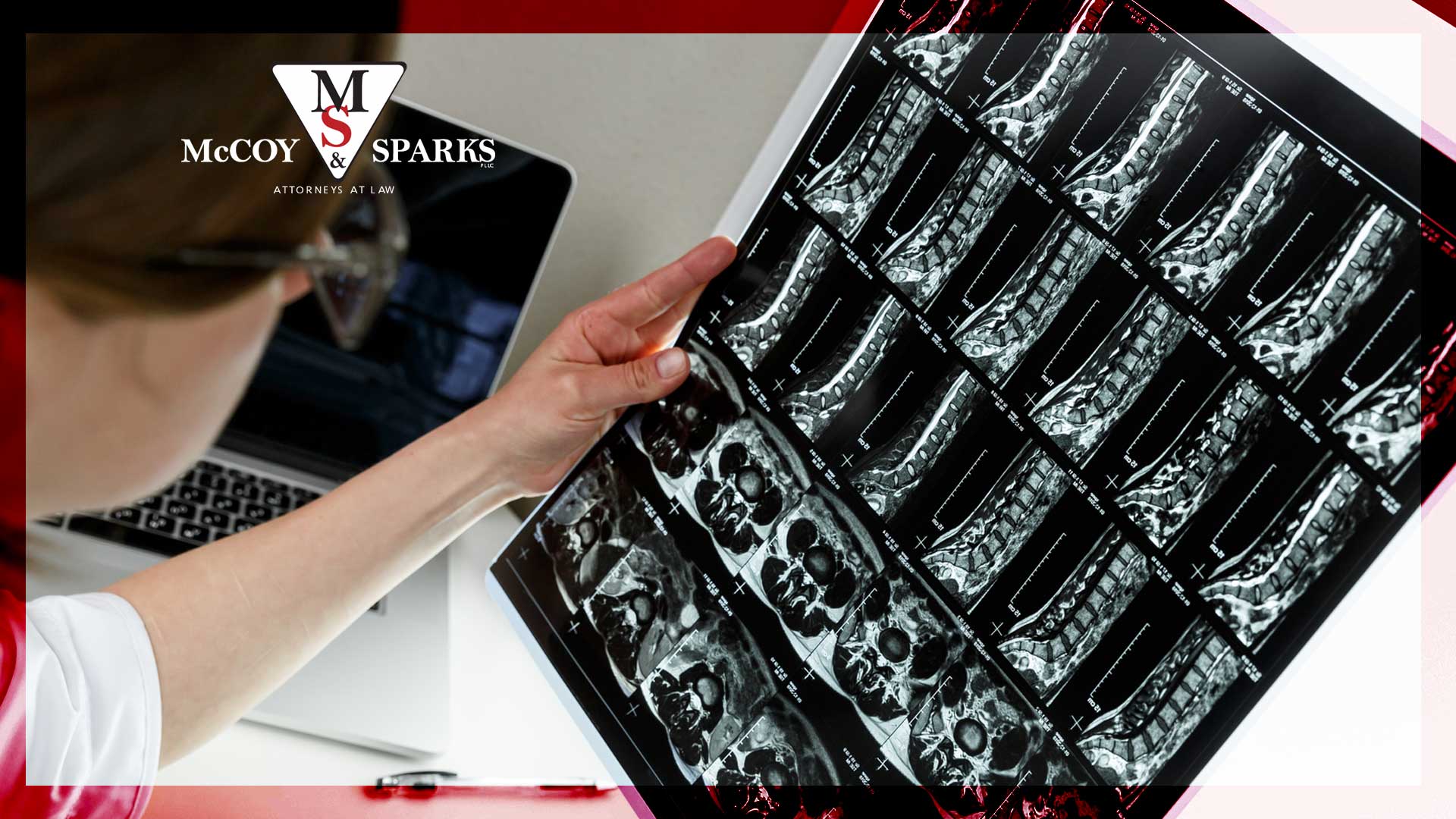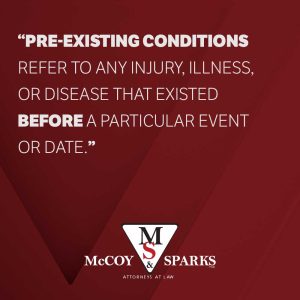
When trying to claim a personal injury, it is important to show the negligence of the responsible party to prove your accident, incident, or injury was preventable. However, insurance companies or members of the opposition will sometimes manipulate the impact of your pre-existing conditions while determining your injury claim. They may attempt to minimize the effects of an accident by using your past medical history to minimize new injuries or to argue against reported changes in pre-existing conditions. They do this in an attempt to devalue or deny your personal injury claim.
Your personal injury attorney will work with you to prove “proximate cause,” meaning that your current condition would not have occurred without a specific chain of events. For example, let’s imagine you had a previous back injury that you were able to manage with stretching and gentle exercises. However, you had a slip and fall at the grocery store because of an unmarked mopped floor. Since that fall, you are now requiring pain medication and frequent chiropractor visits to manage your back pain. These new treatments are more costly, time-consuming, and invasive than your previous pain management methods.
In this example, you and your attorney would prove proximate cause by presenting medical documentation and other evidence that your new financial, physical, emotional, and time costs for managing your back pain resulted from the grocery store fall. But real-life cases are rarely straightforward and often involve insurance companies of responsible parties working against you.
How do we detangle your prior conditions, new injuries, and changes to prior conditions to maximize the value and validity of your claim?
What is a Pre-Existing Condition?

First, it is important to understand what qualifies as a pre-existing condition. Pre-existing conditions refer to any injury, illness, or disease that existed before a particular event or date. In a personal injury claim, these conditions would have to have existed before the specific accident or incident in question. Some common conditions noted in pre existing injury settlements may include:
- Disc herniation
- Degenerative disc disease
- Other causes of back or neck pain
- Back or neck injuries
- Fractures that have healed
- Muscular strains, sprains, or tears
- Neurological conditions or injuries including concussions or brain injuries
- Mental health conditions such as depression or anxiety
- Chronic medical conditions such as diabetes, arthritis, or hypertension (high blood pressure)
How Do Insurance Companies Determine Pre Existing Conditions?
Remember that the above is not a complete list. Any prior condition can be used as a contributing pre-existing condition in your personal injury case. Insurance companies are in the business of making and keeping money. They will dig through your past medical history in search of evidence indicating that your injuries were not sustained in an accident, but rather were pre-existing.
Keep or gather copies of all your past medical records in preparation for your injury claim. This includes anything related to diagnosing, treating, ongoing management, or daily life impacts of your conditions. You can work with your doctor’s office, any therapy offices, or other related providers’ offices to gather these documents if you do not already have a copy.
How Will My Pre-Existing Conditions Affect My Claim?
Having pre-existing conditions does not, in any way, preclude you from filing a personal injury claim. In fact, being a victim of a car accident with a pre existing condition may exacerbate your ailment in addition to causing new issues.
Unfortunately, insurance companies or responsible parties may try to use pre-existing conditions to lessen or disprove the impact of an accident or new injury on these conditions. Even still, it is very important to be completely transparent with insurance providers and your personal injury team. Concealing or failing to report any pre-existing conditions can be considered insurance fraud. Insurance fraud carries the possibility of criminal charges and would exclude you from receiving any financial compensation.
Although it is important to truthfully report all pre-existing conditions, you should consult an attorney before signing or submitting any release forms to an insurance provider. This may include medical record release, medical authorization, or other similar forms that grant insurance companies access to your records and providers. Your attorney can advise you as to whether these forms are appropriate and necessary, or if they may be related to insurance efforts to find and manipulate pre-existing conditions that are not relevant to your case.
Contact McCoy & Sparks for Your Free Personal Injury Consultation
Partnering with a personal injury attorney experienced in navigating a personal injury claim with a pre existing condition can be a major benefit to your case. A skilled attorney will make sure you are providing accurate and required information while protecting you from overreaching insurance companies. They will also help you to clearly outline how a specific accident contributed to the worsening or reoccurrence of your pre-existing condition. These efforts ensure that you receive the maximum financial compensation to which you are entitled.
If you are filing a personal injury claim, partner with the experts at McCoy & Sparks as your Central Kentucky personal injury law team. Call our office at 844-459-9467 or fill out this online form today to schedule your free consultation with the attorneys at McCoy & Sparks.

